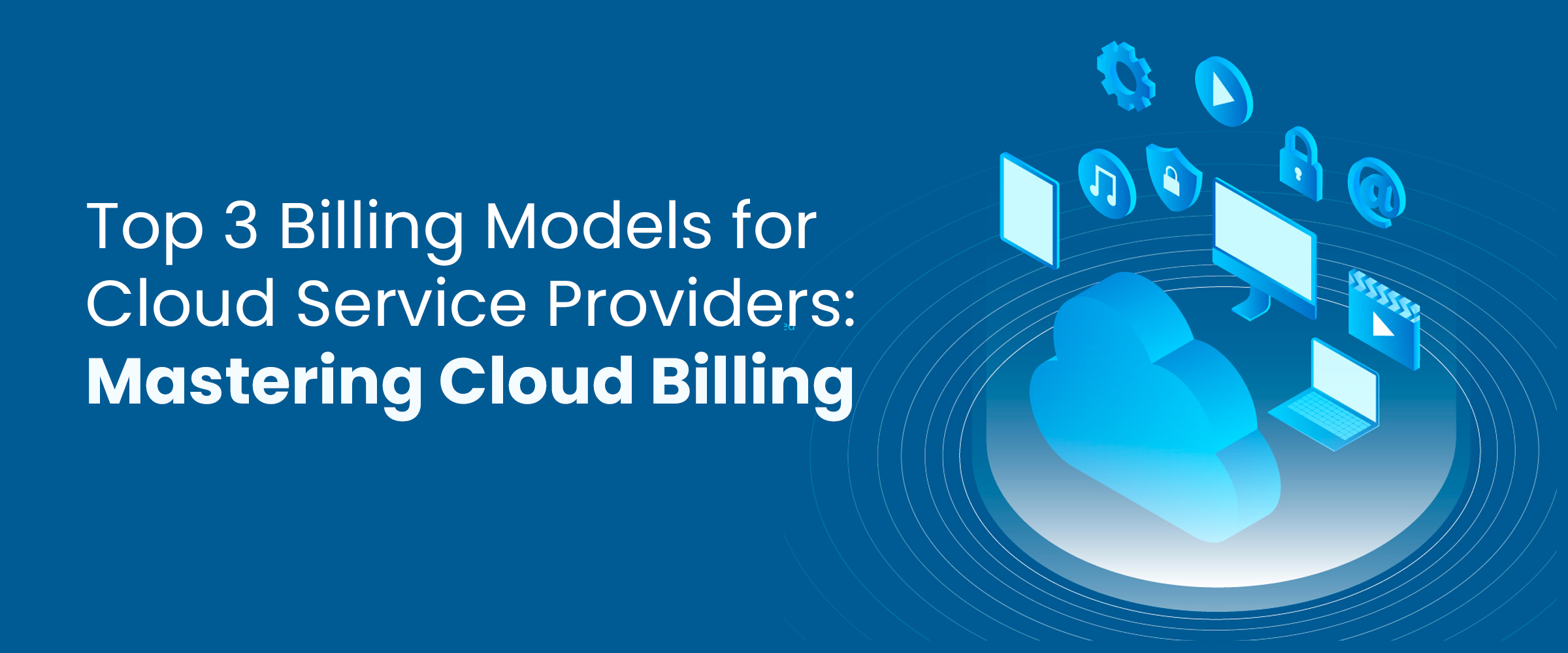Top 3 Billing Models for Cloud Service Providers: Mastering Cloud Billing

Introduction:
Cloud billing involves generating bills from resource usage data in a cloud environment, providing transparency and accountability in billing practices. For cloud service providers, choosing the right billing model is essential for managing costs, attracting customers, and driving profitability.
On-demand Pricing/ PAYG Pricing Models
As a cloud service provider, offering on-demand pricing or pay-as-you-go (PAYG) models provides flexibility and scalability to customers. By charging users based on their actual usage of resources, cloud providers can accommodate fluctuating demand and align costs with revenue.
Implementation Strategies:
- Metered Billing: Implement metered billing to charge customers for specific units of resources consumed, such as compute hours, storage space, or data transfer.
- Per-Transaction Pricing: Offer per-transaction pricing for services like database transactions or API calls, enabling customers to pay only for what they use.
- Pay-Per-Use: Provide pay-per-use options for services like virtual machines or container instances, allowing customers to scale resources dynamically based on
Benefits for Cloud Providers
- Revenue Optimization: On-demand pricing allows cloud providers to maximize revenue by monetizing resource usage efficiently and catering to diverse customer needs.
- Competitive Advantage: Flexible pricing models differentiate cloud providers in the market, attracting customers who value cost transparency and pay-as-you-go flexibility.
- Resource Utilization: By incentivizing efficient resource usage, on-demand pricing helps cloud providers optimize infrastructure utilization and minimize wastage.
Fixed or Subscription-Based Pricing
Fixed or subscription-based pricing models offer predictability and stability for customers who require a consistent level of resources over time. Cloud service providers can leverage fixed pricing to attract long-term commitments and establish recurring revenue streams.
Implementation Strategies
- Tiered Subscription Plans: Offer tiered subscription plans with different levels of resource allocation and pricing tiers, catering to customers with varying needs and budgets.
- Contractual Agreements: Provide discounted rates or special incentives for customers who commit to long-term contracts or volume commitments, ensuring revenue predictability for the provider.
Benefits for Cloud Providers
- Steady Revenue Streams: Fixed pricing models guarantee recurring revenue streams for cloud providers, enhancing financial stability and growth prospects.
- Customer Loyalty: Subscription-based pricing fosters long-term relationships with customers, promoting loyalty and reducing churn rates.
- Simplified Billing: Fixed pricing simplifies billing processes for both providers and customers, reducing administrative overhead and streamlining operations.
Hybrid Pricing
Hybrid pricing models combine elements of both on-demand and fixed pricing, offering flexibility and customization options for customers. Cloud service providers can leverage hybrid pricing to cater to diverse customer preferences and usage patterns.
Implementation Strategies
- Steady Revenue Streams: Offer hybrid billing options that combine fixed monthly fees with usage-based charges, providing customers with flexibility and control over their costs.
- Customized Pricing Plans: Tailor pricing plans to meet the specific needs of enterprise customers, incorporating features like volume discounts, custom SLAs, or dedicated support services.
Benefits for Cloud Providers
- Customization Options: Hybrid pricing allows cloud providers to tailor pricing plans to individual customer requirements, accommodating a wide range of use cases and budgets.
- Customized Pricing Plans: By offering multiple pricing models, cloud providers can diversify their revenue streams and mitigate risk associated with market fluctuations or customer churn.
- Market Differentiation: Hybrid pricing models differentiate cloud providers in a competitive market, attracting customers who value flexibility, customization, and transparency in billing practices.
Conclusion
In conclusion, cloud billing models play a crucial role in shaping the competitive landscape for cloud service providers. By offering a diverse range of pricing options, providers can attract customers, optimize revenue streams, and drive business growth.
Whether implementing on-demand, fixed, or hybrid pricing models, cloud service providers must carefully consider their target market, competitive positioning, and long-term business objectives. By understanding customer needs and preferences, providers can develop pricing strategies that maximize value for both parties and foster sustainable growth in the dynamic cloud market.
Read more about Hybr billing capabilities https://www.cloudassert.com/solutions/Cloud-Cost-Management-and-Billing
On-demand webinar: https://www.cloudassert.com/Resources/Webinar/on-demand-webinar-csp-billing-and-self-service
Book your personalized demo here https://www.cloudassert.com/Demo-Request